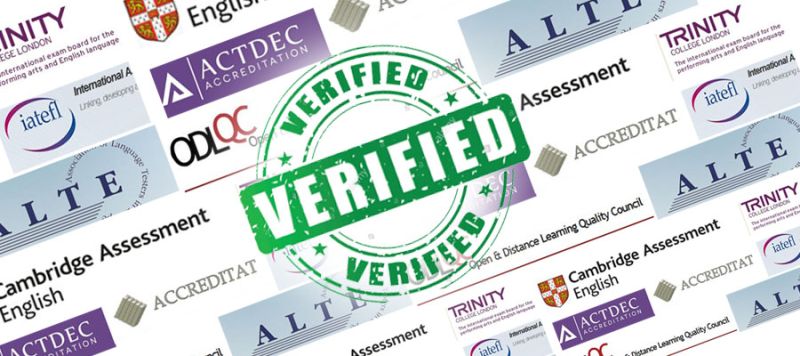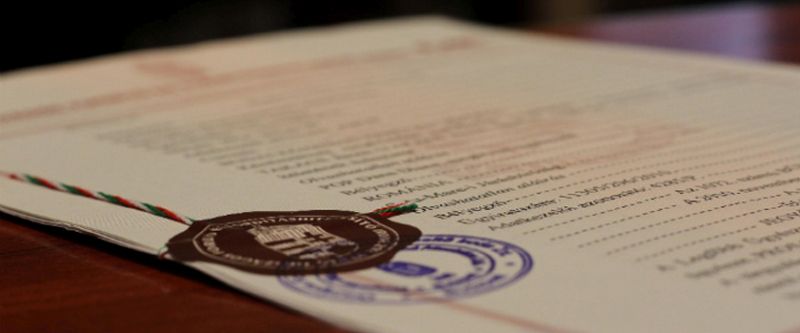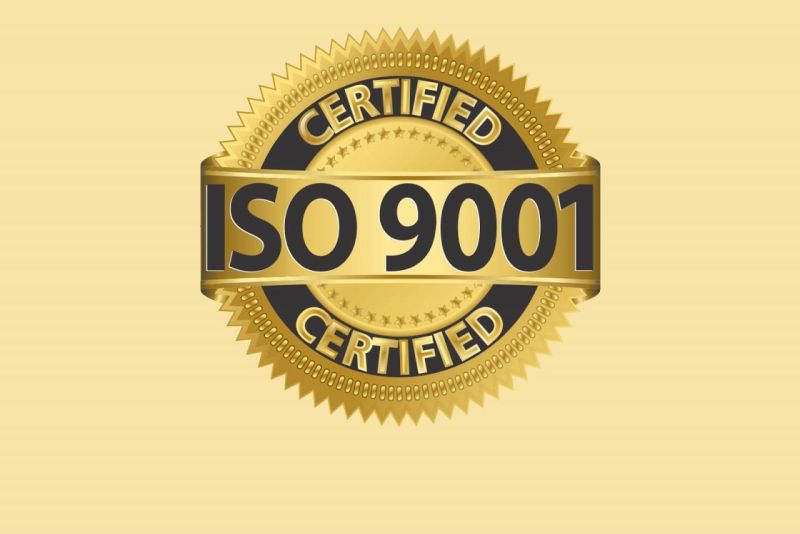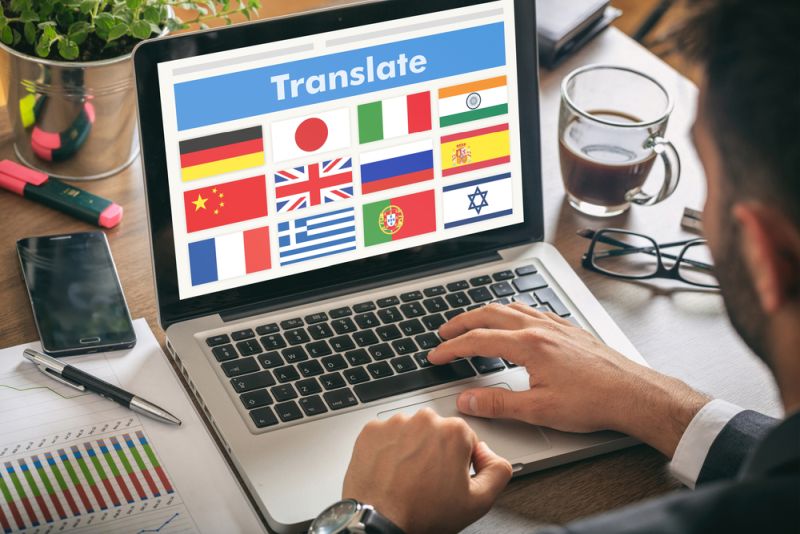Certification is the process of acknowledging someone or something with an official written statement, attesting to individual status, qualifications, and/or privileges. When it comes to the translation industry, there’s often confusion over the concept of certification. Certificates are granted to individual translators, translation companies, or come along with the translation itself to provide evidence of quality and authenticity.

source:moroccoenglish.com
Generally speaking, getting accreditation from a reputable international language entity makes a translator or a translation agency more credible and reliable. This article vets the concept of certification in translation and answers the following questions: What does a translator need to do to become certified?
What is the difference between a certified translator, a well-recognized translation company, and a well-recognized service? When exactly is each type of these certifications required?
Certified translator

source:moroccoenglish.com
A certified translator is a recognized linguist who holds an official certification from a national or international language institution. In the US, for instance, a certified translator is a term that describes those who pass the American Translators Association certification test. The US association’s certificate demonstrates the linguist’s ability to translate from English into another language and vice versa.
In the UK, translation is a deregulated profession, and the concept of certification is much less common. However, obtaining a diploma in translation from the Chartered Institute of Linguists is considered as a kind of certification.
The definition of a certified translator may vary from one country to another, although it always refers to a high-level linguist with extensive expertise. A certified translator could be either a freelancer or an employee at a professional translation company.
Eligibility requirements:

source:pxfuel.com
Most of the translators’ certification schemes require similar prerequisites. To become a certified translator, you need to have:
- Proven reading proficiency in both your source and target languages
- An academic degree in translation or interpretation from a high-ranking educational institution
- At least two-to-five years of demonstrated professional experience
You are then eligible to take the certification test available in your country, and if you pass, you get the certificate.
Steps to Evolve as a Translation Expert
In general, people are expected to have a required degree and almost three years of knowledge in the field to be called a certified translator. If you also wish to become a certified translator, then check out a few certification courses extended by EspressoTranslations. They offer the best courses in the field that will make you industry-ready.
One such fundamental requirement of being recognized as an expert translator is to be efficient in two varied languages. We have discussed a few steps that will help you become an expert in this field.
- Fluency in Another Dialect – You need to triumph a second language to be called a translator. People brought up in a bilingual household retain an advantage over others because they learn two languages from a young age.
You can also prefer comprehending another language by way of schooling. We recommend opting for graduation in the preferred language as an ideal option to be recognized as a certified translator.
- Certification in Translation – Although it is not essential to obtain a certification for the translation services you offer, having a certification in the field indicates that you are skilled to do it just the right way.
You can also decide to get a certificate from The American Translator Association, that furnishes certificates in 29 varied speeches for you to acquire a unique identification and a Certificate of being a Translator. For instance, if you want to have a job in a certain translation field, a certification helps you achieve that.
- Attain Specialist Training – You may be a pro in interpretation and be fluent in almost two languages, but it is crucial to establish proposed skills in those languages. Some people are well versed in a particular language but are not fluent enough to translate it into some other language.
Hence, they need the required skill set for that. To achieve a great career as an interpreter, you can opt for several specific programs that will enable you to accomplish your translation goals. Explore greater opportunities by undergoing specialist training and grow your career in translation.
- Achieve Work Experience – The job of being an interpreter is no different from other jobs. If you want to bag a considerable opportunity in translation, obtaining relevant work experience is recommended. You can achieve the required experience in the industry by proposing freelance and contract interpretation services. You can include this experience in your resume to get an edge over others.
- Try and Comprehend a particular Industry’s Wordings – After achieving fluency in terminology, you are also expected to know industry-specific jargon for effortless translations. Hence, decide an industry you prefer to work on and get accustomed to its wordings.
With an interpretation of the terms used in a specific industry, you can conveniently pursue your career as a translator in that field. For instance, if you are inclined towards the medical industry and want to serve as a generous interpreter, you should be familiar with its specific terminologies.
You need interpersonal and business skills to effectively serve your clients’ requirements. The industry of translation is growing immensely, and with the right skills, you can easily bag the opportunities.
Certified translation agency

source:marstranslation.com
On the business level, certifications are usually acquired from the International Organization for Standardization. What defines a certified translation organization is the possession of an ISO 17100 certificate that evidences quality services. Also, ISO 9001, a certificate of an amazing management system, and ATA membership are considered good alternatives to guarantee quality and precision.
A translation company that obtains one or more of these certifications is considered a certified and trustworthy language service provider.
Although certified translation agencies like Future-Trans may charge a higher cost for their services, they provide much better quality and more efficient solutions.
Eligibility requirements:

source:integratedbiometrics.com
Here are several requirements a translation company needs to fulfill to become ISO-certified:
- Quality assurance is a must. The minimum standard is that translations should be subject to two review phases.
- Translators should hold a certificate of competence in translation awarded by an appropriate government body and have sufficient knowledge of the translation subject matter.
- Proven ability to cooperate with the clients throughout the project implementation and handle their feedback.
- Technical competence with all necessary translation technologies available.
- Reliable data protection and information confidentiality system.
What do Translators do?

source:wordemy.com
Gauging The definitions technically, you will know that translate work and interpreting are the two completely distinct professions. However, people working in either need to know an additional language apart from their local language to be capable of doing this.
They are required in almost every industry, may it be medicine and government. They work in diverse industries ranging from a wide variety. An Industry that uses language can conveniently use these professionals to get their work done. Some freelance or some even own a business. Hence, after attaining a degree in translating languages, you can also start your own business. Their job is highly flexible. You can either choose to have consistent work or can also prefer to have their schedules.
By being a certified translator, you can demonstrate to your clients that you are highly knowledgeable, well-established, and a source of providing high-quality translating works. Moreover, Certified translators stand a better chance of earning more by getting high-paying jobs.
Certified services

source:memsource.com
Should translators and translate work companies be certified to provide a certified translating professional? No, they don’t; certified services mean that the language service provider (LSP) issues an officially signed certificate. In other words, a certified professional is presented with a certificate that implies that the work is completed properly and the translator has given his best.
A certified professional is usually required for carrying out various legal, medical, and official business purposes as the translation provider claim their responsibility for the translated content. This also helps with personal documents like immigration documents, birth and death certificates, passports, etc. to mention a few.
A certified individual will take it upon himself to render with the best services, one where you will not even need to cross-check his work. Hence, be alert while learning the course. Take it upon yourself to provide the best of your services such that the client is super satisfied with your work.
Final words
All in all, this certification gives translation further reliability and more prominence to become the best in their respective domains. When a translator or a translation company is certified, they gain higher trust among their clients and become eligible to work with multinational brands. It is always recommended to partner with a certified professional to get a high standard translation that is valid for regular business use.
The certification will surely be worth your time and money. You will get better recognition, and it serves as proof that you know the language thoroughly. The translation industry has fierce competition. But, the number of translators found in respect to their demand in the market is comparatively less. This stream is fulfilling and highly rewarding. You can become a translator even if you know any language other than your mother tongue.

